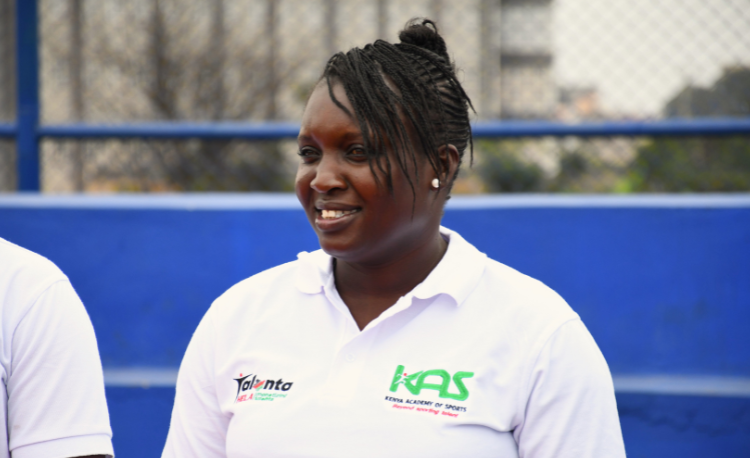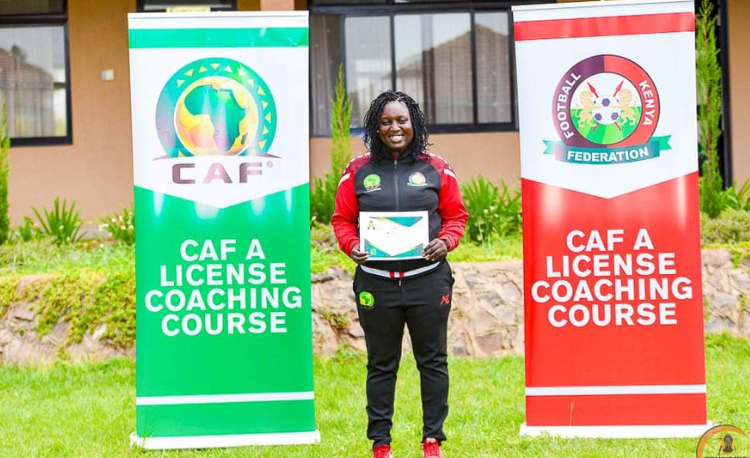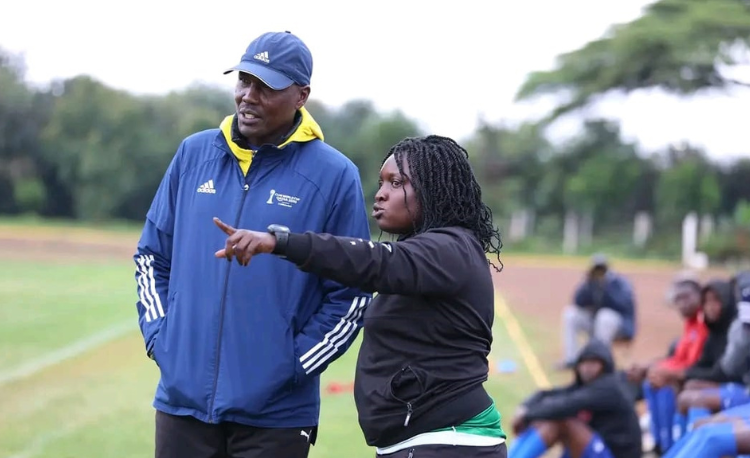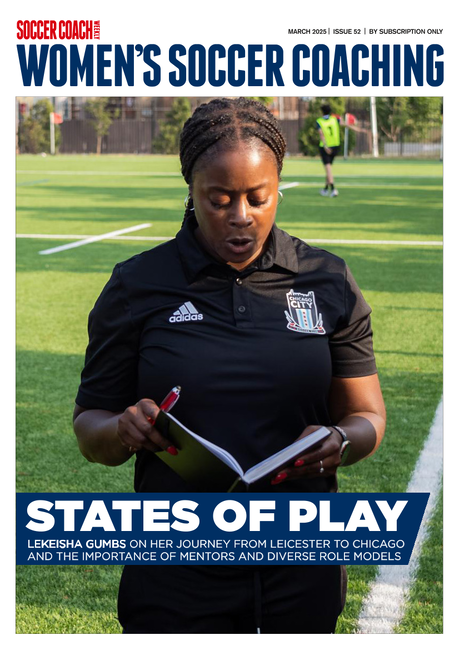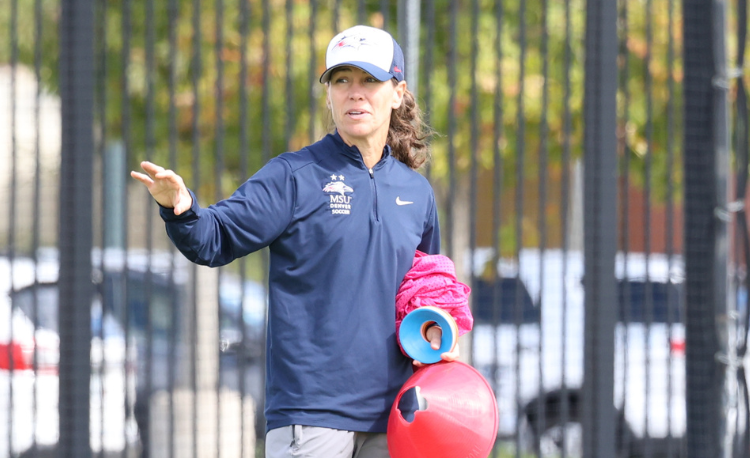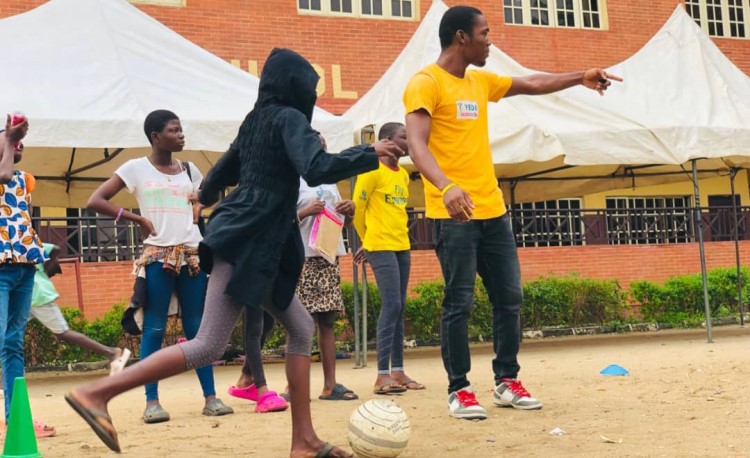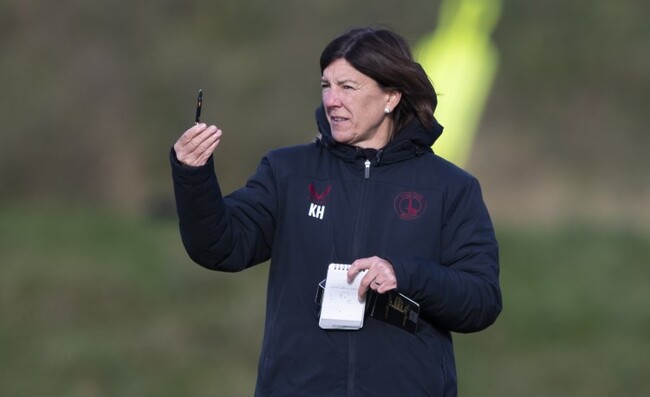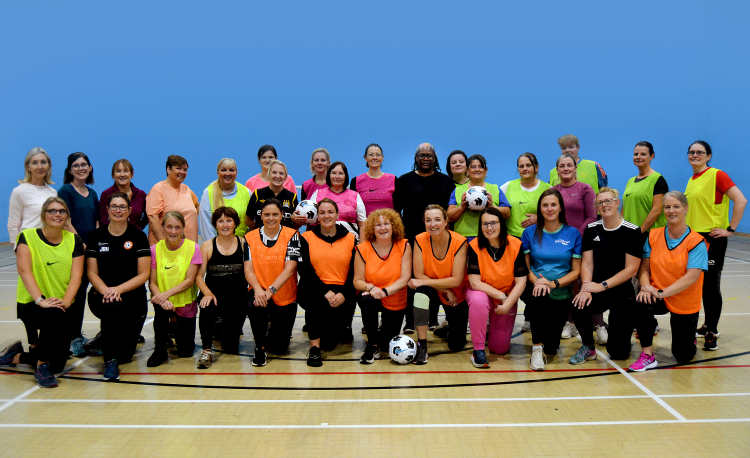You are viewing
1 of your 3 free articles
Jackline Juma: Desire to inspire
As the first woman to lead an elite male team in Kenya, FC Talanta’s head coach Jackline Duma now wants to use her profile and experiences to motivate a new generation of female coaches. Carrie Dunn spoke to her.
Sometimes, it’s just one quick phone call that makes history.
“I got a call when I was instructing a CAF C licence course,” Jackline Juma recalled. The conversation went something like this.
- “Hey, Jackline, how are you?”
“I’m fine.”
- “Are you currently attached? What are your qualifications?”
“I’ve recently graduated from my A Licence course, but I’m not attached to any team.”
- “I was thinking we could bring you on board...”
It was this brief chat that led Jackline to become the first female head coach of a men’s team in the Kenyan Premier League, appointed to lead FC Talanta in August 2024.
She had had offers from other clubs in the women’s game, but this role was particularly attractive, as it enabled her to have input into the boys’ academy development as well as the women’s team at the club.
“We had a very good discussion,” Jackline said. “And, thereafter, the rest is history!”
She knew she was well equipped to take on the challenge, having coached the U20s, U17s and U15s at women’s national-team level, as well as women’s teams at Gaspo, Kayole Starlets, Acakora Ladies, Talanta Hela and Gor Mahia Queens.
The prospect of the inevitable media spotlight did not put her off, either.
“Having been in coaching-course classes with a series of elite men’s coaches, with high profiles, [in] the A licence we did, [when] there were only two ladies, I was [ranked] second out of 25 coaches, so I thought I was ready and I can do this.”
And as FC Talanta players learned who was about to take over from fired head coach Ken Kenyatta, she knew she would settle in well.
“Before I was officially introduced to them, one player, who I knew from way back, texted me and said: ‘Coach, I want to welcome you even before you come.’
“I was, like, ‘Ah, this is positive!’
“I went, I introduced myself, and they were so welcoming, so I knew I was in the right place.”
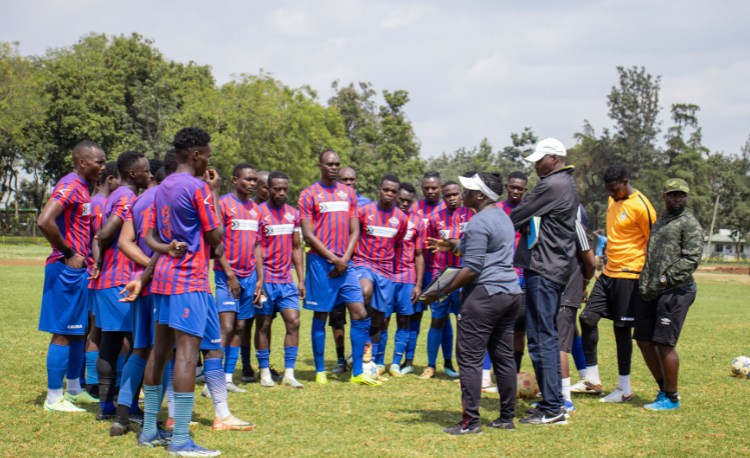
Juma began playing soccer in childhood, kicking a ball around with her brothers, and showing her parents that it was a game for girls, as well.
Her talent led to international recognition at an early age, underlining the point that soccer is a space where both male and female players can excel – and, potentially, carve out a fine career.
“I started playing with my brothers when I was nine years old,” Jackline told WSC.
“At the start, my parents were against it, because they thought it was a boys’ game, but I kept on sneaking, playing and coming back.
“Of course it was not easy at that particular time, but, eventually, I got their support – after a very long time.
“When I first got a call-up to the national team, I was 16 or 17 years old, and I was the youngest player.
“My parents could not believe I was getting a chance to fly in an aeroplane – they thought that was a big thing. [As I was] playing for the national team for the first time: now they thought, ‘This could be something interesting.’”
Yet, soccer had made an impact on Jackline’s family at home before her first international caps.
Her ability had caught the attention of the Mathare Youth Sports Association (MYSA), an organisation who run soccer teams through the age groups, and established the first girls’ leagues in Africa, in 1992.
Jackline played for the youth sides and the adult team, Mathare United.
MYSA also encourages its young players to get involved in projects in their local area, ranging from community clean-ups and HIV/AIDS awareness work, to volunteering as a referee with younger age-group soccer.
Essentially, sport is used as a vehicle for social, cultural and environmental education, awareness and change, as well as having positive effects on individual young people, helping them to develop leadership, negotiation and co-operation skills, while improving their physical health.
One of MYSA’s guiding policies is to support young people to complete their formal education. With that in mind, they awarded Juma a scholarship, covering the fees for her schooling.
After she graduated, she was able to support her siblings through high school, as well. For a family watching every penny, living in an area that lacked infrastructure and investment, covering these costs made a big difference – as did having the chance to complete high school, which not everyone was able to do.
Soccer was what gave Jackline, and her siblings, that chance. But it was not easy.
“I had to work hard,” she said. “After school, you had to do dishes [at home] – you weren’t going anywhere!
“[But] my parents knew that there was something about football. A time came that this was the support I needed – ‘you go to training, you go and play football, I will do the dishes, I will support you’.
“They could not support me financially, maybe, but the moral support was there, and this was the most important thing for me. They have supported me 100 per cent, right up until now.”
Related Files
Her coaching career also began early as part of this arrangement.
“If you got a chance in the [Mathare United] team, you had to also have a girls’ team [to coach], maybe U10s or U12s.
“They would equip us with the knowledge, and get us coaching courses, so when you went back where you came from, you were able to coach the young girls.
“That’s when I started coaching, at 16 years old.”
With so much experience across age groups, and in the men’s and women’s game, Jackline is well placed to assess both the similarities and the different challenges for coaches. She suggests trying to put oneself in the players’ boots.
“You need to understand the players, where they’re coming from, their ages. ‘When I was this age, what was I getting?’. If you understand them, it will be easy to coach them.
“If you don’t, and you don’t fit in their shoes, it will be so hard, because, whatever you coach, they will not listen.”
She adds: “Coaching women’s football needs commitment. There are so many challenges with women’s football.
“You may be dealing with young mothers who are also players, [the different] physiology, anatomy and the science part of it, compared to the men.
“You have to understand all of this. If you don’t understand, it will be difficult.”
Her new job, by necessity, puts her into the spotlight, as is the case with all pioneers. It’s a mantle Jackline happily assumes, and dismisses the idea that it adds additional pressure.
“I use myself as an example,” she said. “I’m here representing women.
“Gender should not be a barrier, especially if you want to coach a men’s team – normally it was like, ‘A lady cannot coach a boys’ team!’, or something like that.
“I’m trying to show women that it’s very much possible. All they require is the credentials and the knowledge in this game.
“I talk about this all the time: in each and every interview, in each and every training session. Wherever I meet women in these forums, I want to preach it!”
And after chasing her ambitions and blazing a trail, even her parents are now supportive of her career path. Nine-year-old Jackline, who crept out of the house to play soccer, would be proud.
But what would she say to that girl, given what she knows now?
“I’d tell her to work hard,” the 2024 Jackline says. “Whatever dream she has, she should go for it.
“It will not come easy. She has to develop a thick skin. There must be commitment, there must be resilience.
“Challenges will come along the way, but the challenges should be seen as a positive, not a negative.
“Whatever you do, whatever you desire, have the self-belief that, yes, you can have it.”
SOLVING THE SHORTAGE OF FEMALE COACHES IN KENYA AND AFRICA
In Kenya, Jackline is one of only two women to hold the CAF A Licence, with 47 men having the same qualification.
As of 2022, there were only 4,140 registered female coaches across the whole of Africa.
As the governing body for the continent, CAF is working to redress that balance, recently participating in a workshop with the Saudi Arabia Football Federation to encourage knowledge exchange among female coaches in the women’s game.
A total of 32 women across both federations – including Jackline, then working within the national junior team set-up – spent a week in Riyadh, discussing topics beyond technique and tactics, including team management, leadership, communication and physical fitness.
As a CAF coach educator, Jackline says she would love to see more women getting involved on her courses.
One recent policy change means that there will be a C Licence course for women only, free of charge. More than 20 women have already applied.
“We found that, at times, we have spaces for women, but they cannot pay the fee that is required,” Jackline said.
“So we thought that if CAF can agree to giving us a course that is free for only women, we can start somewhere. So far, so good.”
‘IT STARTS WITH SELF-BELIEF...IT NEEDS RESILIENCE AND IT NEEDS COMMITMENT’ – JACKLINE’S ADVICE FOR WOMEN IN COACHING
Jackline’s advice to female coaches would be to believe in themselves – but she appreciates this is easier said than done in a sphere where men have historically dominated.
“It starts with self-belief – ‘Can I do this? Am I ready for this?’.
“We need these female coaches to get the right knowledge to get onto these courses, so that they can be certified, get the right knowledge to develop, and compete.
“It’s not something you can just tell someone. It needs time, it needs implementation.”
She feels fortunate that, in her dual role as coach and coach educator, she is in a position to be able to offer words of encouragement and reassurance to novice coaches, which may ultimately boost their self-belief and confidence.
And she adds that female coaches should not be afraid of putting themselves forward for opportunities when they arise – although it may feel safer and more comfortable to step back.
“It needs you to volunteer – I’ve volunteered a lot and worked my way up,” Jackline said.
“It needs resilience, it needs commitment, it needs you to be searching more and more to keep up with the modern trends of football. it needs you to get into classes.
“It needs a lot, but it’s something I don’t get tired of preaching to the young coaches who are coming up.”
Newsletter Sign Up
Newsletter Sign Up
Discover the simple way to become a more effective, more successful soccer coach
In a recent survey 89% of subscribers said Women's Soccer Coaching makes them more confident, 91% said Women's Soccer Coaching makes them a more effective coach and 93% said Women's Soccer Coaching makes them more inspired.
*includes 3 coaching manuals
Get Inspired
All the latest techniques and approaches
Women's Soccer Coaching offers proven and easy to use soccer drills, coaching sessions, practice plans, small-sided games, warm-ups, training tips and advice.
We've been at the cutting edge of soccer coaching since we launched Soccer Coach Weekly in 2007, creating resources for the grassroots youth coach, following best practice from around the world and insights from the professional game.
